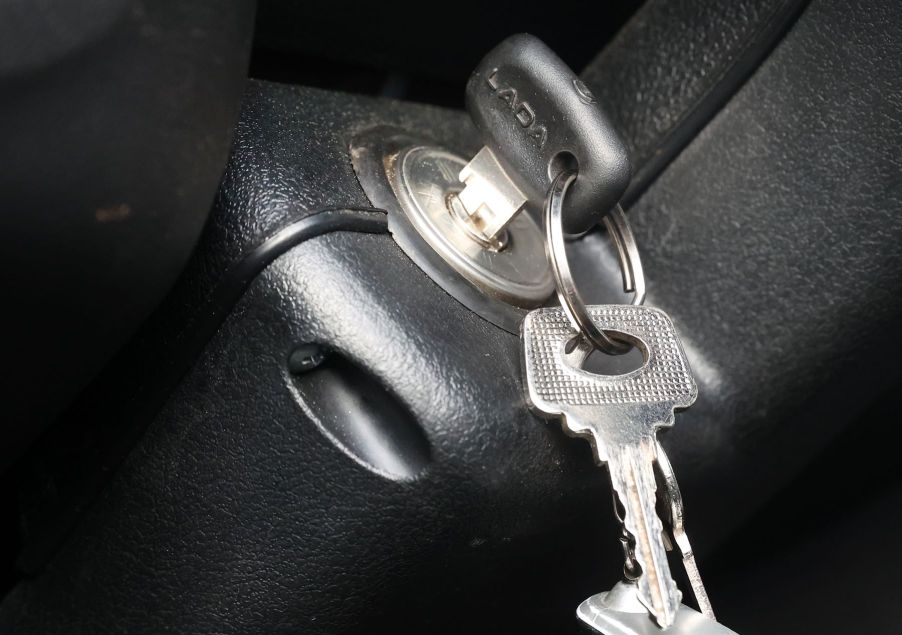
Is It Bad to Turn Your Car off and on a Lot?
As the world slowly gets back to normal, it means more parents feel safe enough sending their kids to in-person classes. That means more cars on the road and a better chance you’ll get caught in heavy traffic. It’s one of the leading causes of stress among drivers, particularly if you live in certain cities.
More traffic also means you’ll be idling for long periods of time. The alternative is to turn your engine on and off as needed, but does this wear down your car in terms of maintenance? Here’s some insight about that claim and why it’s dangerous to leave your vehicle idling for long periods of time.
How often can I turn my car off and on again?

Argonne National Library asked a scientist if there’s any truth surrounding the claim that frequent stopping and restarting damages your engine. Some also claim that doing so can damage the starter over time. The scientist clarified that both of these myths are untrue unless your vehicle has a heavy-duty starter.
Studies show that stopping and starting in favor of idling helps your car in the long run. Drivers that do for even just 10 seconds each day reported better fuel economy. The starter also only starts to show wear if used more than 10 times per day for extended periods.
Is idling worse than turning your car off and on a lot?
As J.D. Power explains, the act of running your engine without moving doesn’t use too much fuel. However, it still drains that battery and continuously warms the engine. Fortunately, as long as your car is maintained correctly, you don’t have to worry about damaging the drivetrain. For example, if your engine is continuously running on a hot day with low coolant, then you’ll run into some problems.
Back in the ’80s, frequent starting and stopping could wreak havoc on engines with carburetors. However, modern cars use fuel-injection technology to promote better fuel economy and longevity of the motor.
The long-term effects of too much idling
While idling won’t harm your engine, that’s only assuming your idling for just a few minutes at a time. Naturally, everyone wants to use the radio or optional back-seat entertainment setups to prevent too much boredom during traffic jams. However, using extra electrical components while the engine is running uses more of the battery.
Also, pay attention to your gas meter as you’re idling. If you’re stuck in heavy traffic on only a quarter tank of gas, there’s a reasonable risk that you’ll run out of fuel on the highway. According to AARP, an Edmunds study showed that the act of stopping and starting saves 20% more gas compared to idling.
Idling also leaves more harmful gases permeating the environment. The Department of Energy states that 30 million tons of C02 are produced each year from idling alone. This isn’t just from personal vehicles either, as public buses and cargo vans are also notorious for idling.
The DOE also points out that idling will earn you a fine in some states. If you’ve been stuck in traffic for 10 seconds or longer with no signs of immediate movement, don’t idle. Furthermore, vehicles equipped with stop-start technology will do the work for you.
There are some instances where a little idling isn’t a big deal. If you know traffic will resume quickly, it wastes time to turn the engine off and on again. Your dog will also appreciate staying in the A/C while you run in the store for a few minutes.
Many drivers also prefer to get inside an idling, heated car during the winter months. However, if traffic has reached a standstill, put those tired feet up and turn the vehicle off.


